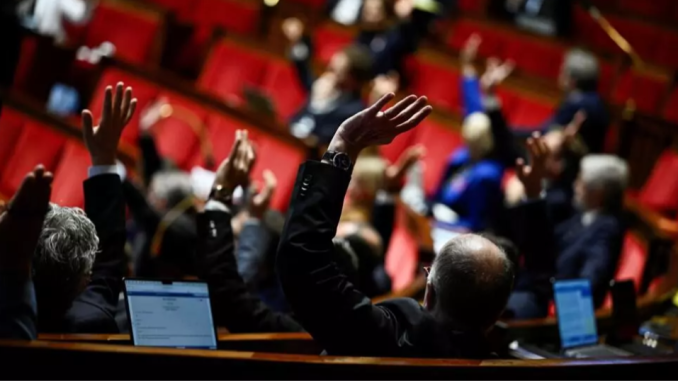
Budget tragedy, act 2. After the incomplete examination of the State budget , the deputies will begin, on Monday October 28, that of the Social Security budget with the same risks of incompleteness, or even rejection, while the government seems in no hurry to use the weapon of 49.3.
The deputies left on Saturday evening without having completed the revenue part of the finance bill: 1,500 amendments remain to be discussed, this debate will resume on November 5.
In the meantime, elected officials met at the Palais Bourbon in the afternoon to try to do better with the Social Security financing bill (PLFSS).
Here too, the first challenge will be to meet the deadlines. Less than thirty hours in public session are planned for the general discussion and then the examination of the approximately 2,200 amendments tabled. This compares to the thirty-five hours that the Social Affairs Committee spent weeding through 1,600 amendments last week, before finally unanimously rejecting the text.
The only advantage of the exercise is that the hot spots of the debate are already marked out. First, the exemptions from employer contributions, which the government wants to revise in order to recover 4 billion euros in the process. While the left voted for it, the Macronists, the right and the far right have allied themselves against this measure decried by the employers.
Disowned by its own camp, the executive says it is ready to move on this point but “we need guarantees in return, we need counter-proposals”, declared the Minister of the Budget, Laurent Saint-Martin, on Sunday.
Civil servants’ waiting days
Bercy has gone all out in this area, by playing a potentially explosive card in the evening: increasing the waiting period from one to three days and paying civil servants less for sick leave , in order to recover a little over a billion euros.
The proposal was received rather favourably by the RN on Monday, “on condition”, said its president Jordan Bardella, that the savings made finance “measures in favour of purchasing power”, such as unpaid overtime for police officers and prison officers.
A “scandal”, thundered the rebellious MP Manuel Bompard, recalling that in the private sector, “in about 75% of cases, it is the companies that cover” the first days of waiting.
In the presidential camp, unsurprisingly, “it’s a good idea”, judged Frédéric Valletoux, Horizons deputy, who sees it as a way to “regulate” the current “explosion of absenteeism”.
The other expected clash concerns pensions. On two counts. On the one hand, the highly contested freeze on pensions, the revaluation of which would be postponed from January 1 to July 1. A cut also estimated at 4 billion euros, eliminated almost unanimously in committee and promised the same fate in the chamber.
All the left-wing, right-wing, Macronist and independent MPs from Liot have in fact signed amendments to remove this article. And the National Rally (RN) has made it “a red line”. Which leaves little hope for those who propose a freeze limited to pensions above 1,200, 1,600 or 2,000 euros per month.
Pensions issue
For Budget Minister Laurent Saint-Martin, it is up to the “parliamentary debate to set the threshold, for example 1,200 euros, which covers more than 30% of retirees, below which retirees could have compensation for this gap”. “But in fact, for technical reasons, all pensions will be revalued on July 1 instead of January 1 “ , he maintained.
On the other hand, the left will put the repeal of the pension reform back on the table through various amendments, even if the return to 62 years is very likely to come up against the axe of financial admissibility.
The text therefore risks being deeply reworked, or even distorted during the debates, especially if the government camp is conspicuous by its absence as last week. An “unacceptable” behavior denounced by the head of the MoDem , François Bayrou, who considered that “the duty of a parliamentarian is to sit on these benches in the Assembly.”
“A sham democracy” which “hides a 49.3”, also accused Jordan Bardella.
The executive denies this: “We are not giving in to the easy option of Article 49.3,” government spokesperson Maud Bregeon affirmed again on Sunday.
All options therefore remain open, including a return of the initial bill to the Senate if the deputies reject the text or are unable to reach the vote as planned on November 5.
At the same time, the Assembly will begin examining the “expenditure” part of the State budget in the Finance Committee, with a few choice pieces this week, such as Education, Ecology and Justice.
Leave a Reply